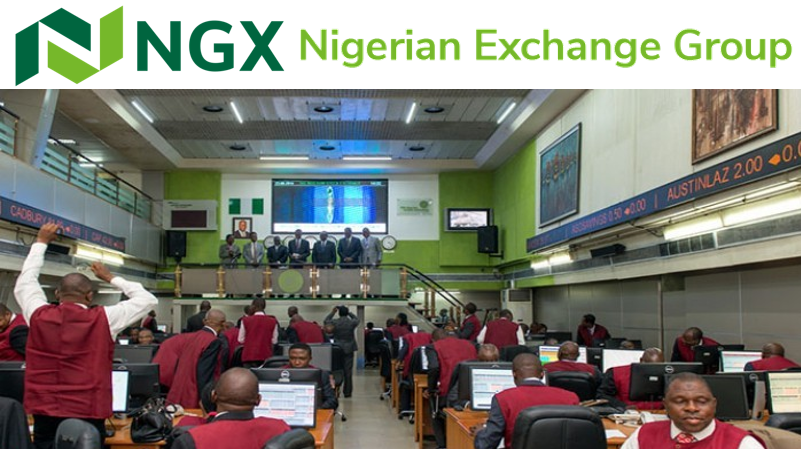capital market
Revised Master Plan will reposition Capital Market — SEC
By Philemon Adedeji
The Revised Capital Market Master Plan 2015-2025 (RCMMP), developed by the Securities and Exchange Commission (SEC) Nigeria in collaboration with stakeholders, has been described as capable of providing a blueprint to harness these opportunities to better position the capital market as the engine of our economic growth and development.
Director General of the Securities and Exchange Commission, Mr. Lamido Yuguda who stated this recently, disclosed that the Master Plan captures the challenges of the capital market in actualizing its role to drive national economic growth and also proffers solutions to enable the capital market attain its full potentials.
Yuguda stated that Nigeria in the last decade has firmly emerged as one of the leading frontier markets in Africa with immense potential for significant growth as the aspiration of the government to create opportunities for the private sector to be a major engine of growth that guarantees improvement in the welfare and standard of living of the citizens of our great country has been diligently articulated in Nigeria’s Medium-Term National Development Plan (MTNDP) 2021-2025.
According to him, “The MTNDP emphasizes development of a deep, broadened and competitive financial system that is better positioned to support private sector growth and economic diversification. Capital Markets provide a useful means to mobilize capital and harness economic interests in an efficient manner to drive innovation and growth.
“The last decade has been characterized by significant volatility in the global financial system caused by various economic and health shocks. At the same time innovative technologies have significantly disrupted how markets operate.
The SEC boss said the first five years of the original Capital Market Master Plan 2015-2025 (CMMP) implementation focused on market and governance reforms in the aftermath of the global financial crises of 2008 and the Nigerian market correction that continued into 2009, with significant success.
“During that period, stock certificates were dematerialized, dividend management was automated, corporate governance standards were improved, intermediaries were strengthened through revised capital requirements and risk based supervision, amongst several other initiatives implemented under the CMMP.
“Today, we face new challenges and opportunities. The pursuit of innovation and growth requires that we are open to opportunities and risks. Our choices are limited if we only seek opportunities within our traditional boundaries.
“Similarly, we inhibit our ability to grow if we do not curtail the threats of unregulated risk taking. Promoting entrepreneurial and innovative outcomes, therefore, requires balancing our openness and more appetite for risk-taking with the critical need to protect investors.
“It is important to contextualize our aspirations within the fundamental objectives of market integrity and investor protection while pursuing economic growth.”
He said that the RCCMP has provided a framework and outlined strategic initiatives that will help embrace and unlock these opportunities in the capital market.
While commending the Honourable Minister of Finance, Budget & National Planning, Mrs. Zainab Ahmed for her unflinching support, Yuguda assured that together with market stakeholders, the SEC intends to lead the implementation of the RCMMP over the next four years and in-line with the objectives of the MTNDP. This he said is a critical success factor in the quest to fulfil the dream of a prosperous and peaceful Nigeria for all citizens.
To position the Nigerian capital market as a key market in Africa, SEC Nigeria developed the 10-year CMMP in 2015. The CMMP is a blueprint for positioning the Nigerian capital market as an efficient and internationally competitive market that can support Nigeria’s emergence as a top 20 global economy in line with Vision 20:2020. The CMMP was developed to assist the government to achieve its strategic economic development program by facilitating an environment that attracts capital to priority economic sectors and ensures the sustained interest of foreign investors in Nigeria.
capital market
Financial expert seeks alignment of FG’s fiscal policy with CBN’s monetary policy


A financial expert, Mr Eddie Osarenkhoe, has advised the Federal Government to align its fiscal policy with the Central Bank of Nigeria’s monetary policy to achieve economic stability.
Osarenkhoe, the immediate past President of Finance Houses Association of Nigeria (FHAN), gave the advice while speaking with newsmen on Wednesday in Ota, Ogun.
He attributed the current steady appreciation of the naira to CBN’s reforms and the country’s ability to pay some of its debts.
Osarenkhoe applauded the CBN reforms which, he said, had helped to sustain the steady appreciation of the naira against the dollar.
The financial expert stated that CBN was able to check speculators in the foreign exchange, thus resulting in continuous appreciation of the nation’s currency.
“If the federal government is able to come up with fiscal policy in alignment with that of CBN, it will help the nation’s economy a great deal,” he said.
According to him, the economy needs to improve through exports to enable the country to earn more foreign exchange.
The naira has shown a remarkable strength against the US dollar, trading below N1,000 at the official market.
This development has been attributed to the strategic financial policies being implemented by the President Bola Tinubu-led administration and CBN.
capital market
Investors lose N457bn as bearish sentiment continues


Investors in the Nigerian equities market lost N457 billion at the end of trading on Wednesday.
This followed the dip in the share value of Livestock Feeds, Computer Warehouse Group, International Energy Insurance, and FTN Cocoa Processors on the trading floor today.
After five hours of trading at the capital market, the equity capitalisation crashed to N56.5 trillion from N56.9 trillion posted by the bourse on Tuesday.
Similarly, the All-Share Index (ASI) fell below the 100,000-mark to 99,908.89 from 100,717.21 achieved by the bourse the previous day.
The market breadth was negative as 17 stocks advanced, 26 declined, while 78 others remained unchanged in 9, 074 deals.
Ikeja Hotel topped the gainers’ list with +10.00 percent to close at N7.26 from its previous N6.60 per share.
Fidelity Bank, Academy, Morison, and Prestige also increased their share prices by 9.88 percent, 9.77 percent, 9.71 percent, and 9.26 percent respectively.
On the flip side, Livestock Feeds, Computer Warehouse Group, International Energy Insurance, and FTN Cocoa Processors led other price decliners as they shed 10.00 percent, 9.79 percent, 9.79 percent and 9.72 percent each off their share prices.
UBA recorded the highest volume by trading 55.013 million shares valued at N1.28 billion in 1,092 deals followed by Zenith Bank with 47.029 million shares worth N1.69 billion traded by investors in 907 deals.
Access Corp traded 44.986 million shares valued at N789 million in 845 deals.
On the value index, Zenith Bank recorded the highest value for the day trading stocks worth N1.69 billion in 907 deals followed by UBA which traded equities worth N1.284bn in 1,092 deals.
Access Corp traded stocks worth N789 million in 845 deals.
capital market
Investors lose N598.69bn as NGXASI declines by 1.04%


The Nigerian stock market ended with a negative market breadth, closing 1,059.91 points lower.
The NGX All-Share Index declined by 1.04 percent to close at 100,717.21 basis points, compared to the previous day’s loss of 0.53 percent to close at 101,777.12 basis points. The NGX Market CAP also recorded a loss of N598.69bn Naira terms. YTD, the NGXASI Stands at 34.70 percent.
The total volume traded advanced by 23.65 percent to close at N403.89m, valued at N8.38bn, and traded in 10,170 deals. ACCESSCORP was the most traded stock by volume with N62.93m, while GTCO was the most traded stock by value with N1.74bn units traded.
The Gote Index declined by 0.46 percent to close at 347.33 basis points, while the Toni index declined by 3.94 percent to close at 565.65 basis points.
At the close of trading, the market recorded 7 gainers, 50 losers, and 67 unchanged. MORISON topped the gainers’ list, while CORNERST topped the losers’ list.
Thus, the market closed with a negative market breadth index (MBI) of -0.64x.
-
Finance3 months ago
Court orders Sen. Victor Umeh to repay N136m bank debt to AMCON
-



 Abuja Update2 months ago
Abuja Update2 months agoUNDP, FG partnership needed to achieve inclusion, equity- Minister
-
Abuja Update4 weeks ago
Banks drive stock market performance with N147bn gain
-



 Infotech2 weeks ago
Infotech2 weeks agoWorld Backup Day: NITDA urges Nigerians to ensure backup of data
-
capital market2 years ago
Rt.briscoe, FBNH, Others halts negative performance of stock market
-



 Health2 weeks ago
Health2 weeks agoImmunisation: FG, GAVI seek synergy with Sokoto Govt.
-
Submission Guidelines3 months ago
CALL FOR SUBMISSIONS: POETRY COLUMN-NND
-
Infotech1 week ago
Forex for Beginners: Unveiling the currency exchange and how to trade it








